| Richard John de Mansfield Absolon |
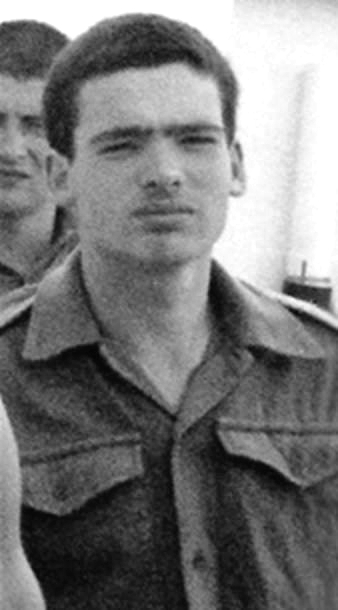 |
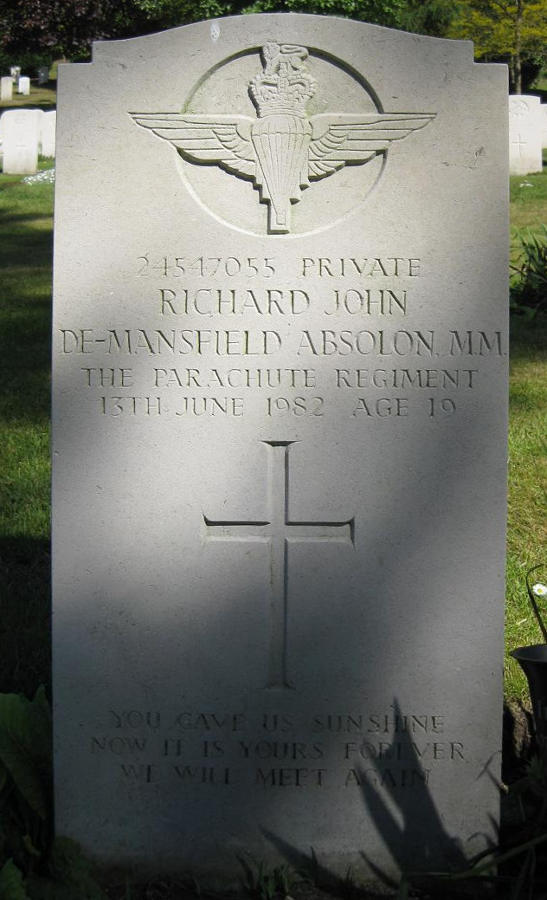 |
Rank:
Service No.:
Awards:
Date of Birth:
Date of Death:
Age:
Regiment:
Cemetery:
Add. Information: |
Private
24547055
Military Medal
13 July 1962
13 June 1982
19
"A" coy. 3rd Bn. Parachute Regiment
Aldershot Military Cemetery, Hampshire
Stepson of Gillian Absolon, nee Pestell. |
| The "London Gazette" on 08 October 1982: |
During eleven days of operations in the Mount Longdon area of East Falkland Island Private Absolon was employed as a scout/sniper with the Patrol Company 3rd Battalion The Parachute Regiment which was tasked with the gaining of information on the enemy force deployed in defensive positions around the Mountain.
On the nights of 2nd/3rd June he was one of a pair of soldiers who successfully carried out close target reconnaissance with the aim of locating enemy positions, gaining information on their strengths, and discovering routes which could be used for a Battalion night attack on the feature. The task required considerable skill and coolness as there was a requirement to close to within a few metres of the enemy. The risk of capture was high, which in turn would have led to the compromise of the whole Battalion operation. Private Absolon and his partner completed the tasks finding good approaches to the objective, providing firm intelligence on the enemy which enabled both the Battalion and Brigade to plan the attacks onto both Mount Longdon and the Two Sisters.
On the night of the 8th June Absolon and his partner led a platoon along the proposed route for the forthcoming attack as a rehearsal. Once again he successfully closed with the enemy without discovery and again returned with even more detailed information on routes and on the enemy.
On the night of 11th/12th June Absolon with his partner led B Company onto the Mount Longdon feature in the first part of an assault to capture the position by the Battalion. The route selected gave the Company the opportunity to take the enemy by surprise and a valuable foothold was gained before the enemy was aware of the attack. Once battle was joined, Absolon fought with determination, always probing ahead to locate the enemy and sniping at every opportunity. He was responsible for killing one particular sniper who was preventing the Company Headquarters from moving forward to link up with its platoons. He continued to display dash and determination throughout the 12th in a manner which was an example to many about him particularly for one so young. Tragically he was killed by mortar fire the next morning.
This young and promising soldier displayed coolness, determination and bravery under fire in demanding circumstances that were outstanding. |
MercoPress (South Atlantic News Agency)
reported on Saturday, 01 February 2014: |
Falklands' honors only New Zealand soldier killed during the 1982 war |
Falkland Islands Member of the Legislative Assembly Mike Summers attended on Friday a wreath-laying ceremony at Palmerston, New Zealand, to honor the sacrifice of Private Richard Absolon who was the only New Zealand solider killed during the Falkland Islands war in 1982.
The ceremony remembering Richard John De Mansfield Absolon, or "Dickie", as he was known to his comrades, took place at his former school Palmerston North Boys High.
"It's a tragedy that young men have to die in war, but if they die in the cause of freedom, then they have done great work" said MLA Summers.
The Falklands lawmaker has been talking to governments in New Zealand and Australia during the past few weeks about the progress the Falklands have made since the war with the development of the fisheries, tourism and oil industries, and is working on the continued support from these countries as it faces a sustained aggressive attitude from Argentina which claims sovereignty over the Islands.
In 1982 Argentina invaded the Falklands and held on to the Islands for 74 days until they were defeated and expelled by a British Task Force sent to liberate them. Argentina however has never dropped its claims over the Falklands and other South Atlantic islands.
The Falklands' GDP has increased 15-fold since the war and the Islands are self sufficient and self governing expect for defense and foreign affairs which is responsibility of London. Last March the Falklands held a referendum in which the overwhelming majority voted to remain as a British Overseas Territory.
The result of the referendum had world impact and came as a huge blow for the sovereignty ambition of Argentina that bases its claims on territorial integrity and ignores the Falklands population saying they were 'implanted'.
Richard Absolon was born in England, but in 1972 his family moved to New Zealand, taking up farming in Marton. In 1980, aged 18, he returned to Britain and joined the army, where after six months' training, he was sent to 3rd Battalion Parachute Regiment, and joined A company. He was later deployed to the Falklands, where he worked as a reconnaissance scout. On June 13, 1982, the day after a successful assault on the enemy, he was mortally wounded by mortar fire and died later that evening, aged 19.
Palmerston North Boys' High have a plaque and memorial trophy dedicated to Private Absolon. The trophy is awarded each year to the pupil who has demonstrated outstanding qualities of fitness, courage, dedication and determination, as exemplified by Private Absolon.
"One of the tragedies of war, as many soldiers have told us, is if you go and fight somewhere and come back, and go back again years later, and it's still the same as it was before, that is a tragedy. In the Falklands, we have moved forward very substantially", said MLA Summers.
The ceremony was attended by Private Absolon's stepmother, Gillian Absolon, who said she was not in favor of war, but was pleased that the future for the people of the Falklands was hopeful.
The school's memorial trophy, celebrating the traits her stepson exhibited was lovely, she said. |
 |
| Michael J. Adcock |
Rank:
Service No.:
Date of Birth:
Date of Death:
Age:
Regiment:
Cemetery:
Add. Information: |
Petty Officer Air Engineering Mechanic (Electrical)
D076946L
12 June 1982
Royal Navy, H. M. S. "Glamorgan"
Killed when the Glamorgan was damaged by a land-launched
Exocet missile on the Stanley gunline. |
| Adrian U. Anslow |
Rank:
Service No.:
Date of Birth:
Date of Death:
Age:
Regiment:
Cemetery:
Add. Information: |
Air Engineering Mechanic (Radio) 1
D76381K
25 May 1982
Merchant Navy, S. S. "Atlantic Conveyor"
Died when Atlantic Conveyor was hit by an Exocet Missile. |
| Frank O. Armes |
Rank:
Service No.:
Date of Birth:
Date of Death:
Age:
Regiment:
Cemetery:
Add. Information: |
Marine Engineering Mechanic (Mechanical) 1
D170136A
25 May 1982
Royal Navy, H. M. S. "Coventry"
Killed when his ship was bombed and sunk while operating
off the northern coast of West Falkland. |
| Derek K. Armstrong |
Rank:
Service No.:
Date of Birth:
Date of Death:
Age:
Regiment:
Cemetery:
Add. Information: |
Able Seaman (Sonar)
D171126C
abt. 1960
21 May 1982
22
Royal Navy, H. M. S. "Ardent"
|
| Raymound E. Armstrong |
Rank:
Service No.:
Date of Birth:
Date of Death:
Age:
Regiment:
Cemetery:
Add. Information: |
Acting Corporal
21 May 1982
22nd Special Air Service Regiment
Died when the Sea King helicopter ZA294 he was in
crashed into the sea while transferring troops. |
| John L. Arthy |
Rank:
Service No.:
Date of Birth:
Date of Death:
Age:
Regiment:
Cemetery:
Add. Information: |
Acting Sergeant
21 May 1982
22nd Special Air Service Regiment
Died when the Sea King helicopter ZA294 he was in
crashed into the sea while transferring troops. |
| Malcolm Atkinson |
Rank:
Service No.:
Date of Birth:
Date of Death:
Age:
Regiment:
Cemetery:
Add. Information: |
Acting Warrant Officer 1
21 May 1982
22nd Special Air Service Regiment
Died when the Sea King helicopter ZA294 he was in
crashed into the sea while transferring troops. |
| John I. Baker |
|
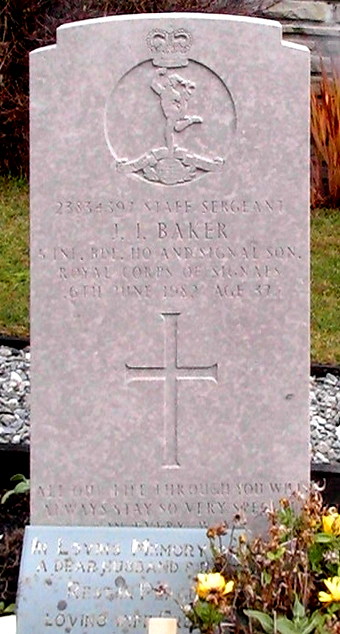 |
Rank:
Service No.:
Date of Birth:
Date of Death:
Age:
Regiment:
Cemetery:
Add. Information: |
Staff Sergeant
03 July 1945
06 June 1982
36
5th Infantry Brigade Headquarters and Signals Squadron
Blue Beach Military Cemetery, Falklands Islands
Died when the Gazelle helicopter he was travelling in
crashed near Pleasant Peak. |
| David Ian Balfour |
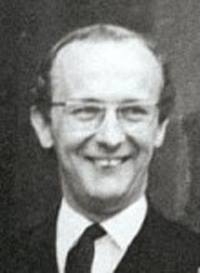 |
Rank:
Service No.:
Date of Birth:
Date of Death:
Age:
Regiment:
Cemetery:
Add. Information: |
Lieutenant-Commander
CO13406T
09 July 1944, Edinburgh, Scotland
04 May 1982
37
Royal Navy, H. M. S. "Sheffield"
Son of Rear Admiral George Ian MacIntosh Balfour.
Died when the Sheffield was hit by an Exocet missile. |
| Richard W. Banfield |
Rank:
Service No.:
Date of Birth:
Date of Death:
Age:
Regiment:
Cemetery:
Add. Information: |
Lieutenant-Commander
C019615Y
abt. 1952
21 May 1982
30
Royal Navy, H. M. S. "Ardent"
Killed when the Ardent was bombed and sunk in Falkland Sound. |
| Andrew R. Barr |
Rank:
Service No.:
Date of Birth:
Date of Death:
Age:
Regiment:
Cemetery:
Add. Information: |
Able Seaman (Sonar)
abt. 1962
21 May 1982
20
Royal Navy, H. M. S. "Ardent"
Killed when the Ardent was bombed and sunk in Falkland Sound. |
| James A. "Jim" Barry |
Rank:
Service No.:
Date of Birth:
Date of Death:
Age:
Regiment:
Cemetery:
Add. Information: |
Lieutenant
03 June 1957
28 May 1982
24
2nd Bn. Parachute Regiment
Aldershot Military Cemetery, Hampshire
He was killed in a confused situation where the Argentines
perceived that he intended to surrender whereas Barry
thought that it was they who wished to do so, the circumstances
made more complicated by friendly fire from Darwin Hill. |
| Gordon Walter James Batt |
Rank:
Service No.:
Awards:
Date of Birth:
Date of Death:
Age:
Regiment:
Cemetery:
Add. Information: |
Lieutenant Commander
Distinguished Flying Cross
1945
23 May 1982
37
Fleet Air Arm, 800 Squadron, H. M. S. "Hermes"
Died when his aircraft was lost in unknown circumstances,
possibly destroyed by its own bomb detination
after taking off for operations. He has flown the Sea Harrier ZA192. |
The "London Gazette" on 08 October 1982 |
Lieutenant Commander Batt, H. M. S "Hermes", played a key role in the air battle and operations over the Falklands. On 4th May 1982, he led a daring and aggressive attack on the airstrip at the Goose Green settlement during which his number two was shot down and the pilot killed. He participated in five other low level attacks against defending targets, notable, on two occasions, against Port Stanley airfield. He also flew up to four air defence sorties per day, sometimes combining further ground attacks with these sorties. He was killed on a night mission prior to another low level attack on the airfield.
Lieutenant Commander Batt faced the danger and very high stress with characteristic cheerfulness which was a fine example to the other aircrew. He knew the odds against him but his courage never failed and his aggressive flying on 29 operational missions was in the highest traditions of the Service. |
 |
| William Begley |
Rank:
Service No.:
Date of Birth:
Date of Death:
Age:
Regiment:
Cemetery:
Add. Information: |
Acting Corporal
1982
22nd Special Air Service Regiment
Killed when his ship was bombed and sunk in Falkland Sound. |
| Brian Biddick |
Rank:
Service No.:
Date of Birth:
Date of Death:
Age:
Regiment:
Cemetery:
Add. Information: |
Captain
abt. 1934
12 May 1982
48
Merchant Navy, S. S. "Uganda" (Hospital Ship)
Captain Brian Biddick from H. M. H. S. "Uganda" underwent an emergency operation on the voyage to the Falklands, was repatriated by an RAF medical flight to the hospital at Wroughton where he died on 12 May. |
| Gary D. Bingley |
Rank:
Service No.:
Awards:
Date of Birth:
Date of Death:
Age:
Regiment:
Cemetery:
Add. Information: |
Lance Corporal
24347663
Military Medal
28 February 1958
28 May 1982
24
2nd Bn. Parachute Regiment
Aldershot Military Cemetery, Hampshire
Killed during the Battle of Goose Green. |
The "London Gazette" on 08 October 1982 |
Throughout 28th May 1982, the 2nd Battalion The Parachute Regiment were engaged in fierce fighting to take well entrenched enemy positions in the area of the Goose Green settlement on the Island of East Falkland. Lance Corporal Bingley was a Section Commander.
During the battle his section came under fire at close quarters from two enemy machine-gun posts. To destroy the enemy positions he led his section in the assault and whilst leading was fatally wounded.
His heroic action enabled his company to continue their advance and was significantly instrumental in defeating the enemy. |
| Ian M. Boldy |
Rank:
Service No.:
Date of Birth:
Date of Death:
Age:
Regiment:
Cemetery:
Add. Information: |
Able Seaman (Radar)
abt. 1962
21 May 1982
20
Royal Navy, H. M. S. "Argonaut"
Killed when the Argonaut was bombed and damaged in Falkland Sound. |
| The "Guardian" reported on 03 April 2012: |
Falklands widows remember loved ones on war's 30th anniversary
Single candle lit in chapel at national memorial arboretum
to remember 255 British servicemen who died. |
Margaret Allen was just 23 when the HMS Argonaut was hit by two 1,000lb Argentinian bombs midway through the Falklands war, killing her husband, Able Seaman Iain Boldy. They had been married just two weeks.
Mrs Allen was first told that he was missing, presumed dead. She clung on to the hope that somehow it was all a terrible mistake. But four days later, on 25 May 1982, she was told that his body had been recovered. Iain, 20, was buried at sea.
"It was a terrible, terrible time. I can barely describe the pain and the shock. I didn't think I would be able to survive it," Mrs Allen said on Monday, at a memorial at the national memorial arboretum in Staffordshire to mark the 30th anniversary of the Argentinian invasion of the islands.
In 1992, 10 years on from her husband's death, the first Gulf war started to trigger painful memories for Mrs Allen, who was diagnosed with post-traumatic stress disorder.
"In 1992 I was still stuck in 1982. I was still expecting them to come to the door and tell us that Iain had died. I looked like I was OK, but I just felt totally dead inside. I wasn't sure that I was going to be able to get through it." Two years of therapy, she says, saved her life. And despite her sacrifice, she says the Falklands conflict was worth it.
"We had no choice. But I miss him, and it will always be that way. I can't change it. So I have to make my life useful." Mrs Allen joined other widows and veterans at the national arboretum to remember their loved ones and attend a simple, 10-minute service, led by the Rev Vic Van Den Bergh. She lit a single candle in the arboretum's millennium chapel, which will burn for 74 days - the total length of the conflict.
"It was a real privilege," Mrs Allen said. "Because this is an opportunity to remember all of those who have suffered as a result of the Falklands. I was really grateful for the opportunity to remember and reflect."
The arboretum, home to more than 240 memorials, is also the site of the national armed forces memorial, on which Boldy's name is engraved. It receives around 300,000 visitors a year and half of the money towards a new £12m visitor centre has been raised.
"I think it shows an ongoing need for remembrance," said the Royal British Legion spokesman Andrew Baud. "It used to be a place for veterans but now it is very much a place for families."
New recruits to the armed forces are brought here as part of basic training. "It gives them a full view of what it means to be in the forces," said Baud. "And of course makes them hope that their names will never be here in the future."
A permanent memorial to those killed in the Falklands will be unveiled at the arboretum on 20 May, with the ceremony expected to attract more than 600 veterans.
Mrs Allen, now 53, of Ashbourne, Derbyshire, is a member of the War Widows' Association, volunteers with the veterans' mental health charity Combat Stress, and shows school parties around the armed forces memorial.
A total of 907 people were killed in the Falklands conflict: 649 Argentinian personnel, 255 British servicemen and three civilian Falkland Islands women.
Rather than relive the pain, she says seeing her husband's name etched in the stone is deeply comforting. "I was running my hands over his name this morning and I felt as if I was feeling his cheek against my hand. To have this place in my heart is amazing. This is my place. "And I hope and pray that the Argentinians have somewhere like this place to come too. Because for every one of us there are two or three of them. I am so very sorry for that. Nobody wins in war."
• This article was amended on 3 April 2012. The original referred to Margaret Allen as "Allen" after first mention. This has been corrected in accordance with Guardian style on honorifics.
|
 |
| John Edward Eyton-Jones |
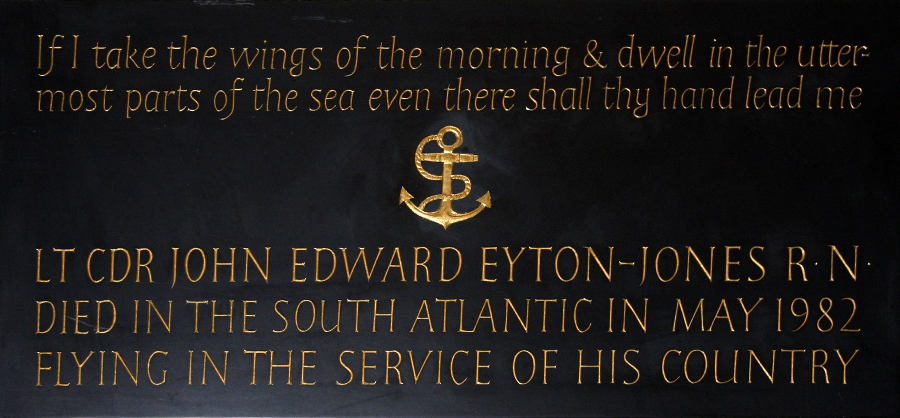 |
If I take the wings of the morning & dwell in the utter-
most parts of the sea even there shall thy hand lead me.
Lt. Cdr. John Edward Eyton-Jones R. N.
died in the South Atlantic in May 1982
flying in the service of his country. |
Rank:
Service No.:
Date of Birth:
Date of Death:
Age:
Regiment:
Cemetery:
Add. Information: |
Lieutenant-Commander
C016085B
24 April 1943, Northampton, England
06 May 1982
39
Royal Navy, H. M. S. "Invincible"
He was the second of two brothers and two sisters.
His father, John senior, served in the Royal Artillery
during the Second World War.
Educated at Northampton Grammar School, he joined
the Royal Navy as a Fleet Air Arm pilot in 1964.
EJ, as he was called, and Lt. Al Curtis, flying a night patrol
in two Sea Harriers, were vectored to investigate a suspicious
radar contact near the stricken hulk of H. M. S. "Sheffield".
The weather was appalling, with rain, fog and low cloud.
Both pilots are missed. |
 |
| Herbert Jones |
 |
Rank:
Service No.:
Awards:
Date of Birth:
Date of Death:
Age:
Regiment:
Cemetery:
Add. Information: |
Lieutenant-Colonel
Victoria Cross
Commander of the Order of the British Empire
14 May 1940, Putney, Middlesex
28 May 1982 (Battle of Goose Green)
42
2nd Bn. Parachute Regiment
Blue Beach War Cemetery, Falklands Islands
Son of Herbert Jones (1888-1957), an American artist,
and his Welsh wife, Olwen Pritchard (1902-1990), a nurse. |
The Victoria Cross citation: |
"On 28th May 1982, Lieutenant Colonel Jones was commanding 2nd Battalion, The Parachute Regiment on operations on the Falkland Islands. The Battalion was ordered to attack enemy positions in and around the settlements of Darwin and Goose Green. During the attack against an enemy, who was well dug in with mutually supporting positions sited in depth, the battalion was held up just South of Darwin by a particularly well-prepared and resilient enemy position of at least 11 trenches on an important ridge. A number of casualties were received. In order to read the battle fully and ensure that the momentum of his attack was not lost, Colonel Jones took forward his reconnaissance party to the foot of a re-entrant, which a section of his battalion had just secured. Despite persistent, heavy and accurate fire the reconnaissance party gained the top of the re-entrant, at approximately the same time as the enemy positions.
In his effort to gain a good viewpoint, Colonel Jones was now at the very front of his battalion. It was clear to him that desperate measures were needed in order to overcome the enemy position and rekindle the attack, and that unless these measures were taken promptly the battalion would sustain increasing casualties and the attack perhaps even fail. It was time for personal leadership and action. Colonel Jones immediately seized a sub-machine gun, and, calling on those around him and with total disregard for his own safety, charged the nearest enemy position. This action exposed him to fire from a number of trenches.
As he charged up a short slope at the enemy position he was seen to fall and roll backward downhill. He immediately picked himself up, and charged the enemy trench firing his sub-machine gun and seemingly oblivious to the intense fire directed at him. He was hit by fire from another trench, which he outflanked and fell dying only a few feet from the enemy he had assaulted. A short time later a company of the battalion attacked the enemy, who quickly surrendered. The devastating display of courage by Colonel Jones had completely undermined their will to fight further.
Thereafter the momentum of the attack was rapidly regained, Darwin and Goose Green were liberated, and the battalion released the local inhabitants unharmed and forced the surrender of some 1,200 of the enemy.
The achievements of 2nd Battalion The Parachute Regiment at Darwin and Goose Green set the tone for the subsequent land victory on the Falklands. They achieved such a moral superiority over the enemy in this first battle, that despite the advantages of numbers and selection of battle-ground, they never thereafter doubted either the superior fighting qualities of the British troops, or their own inevitable defeat. This was an action of the utmost gallantry by a commanding officer whose dashing leadership and courage throughout the battle were an inspiration to all about him." |
| Ian John McKay |
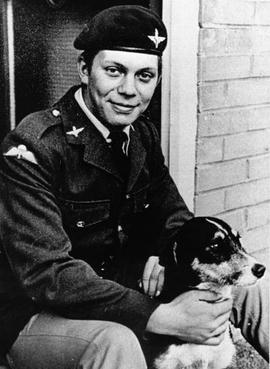 |
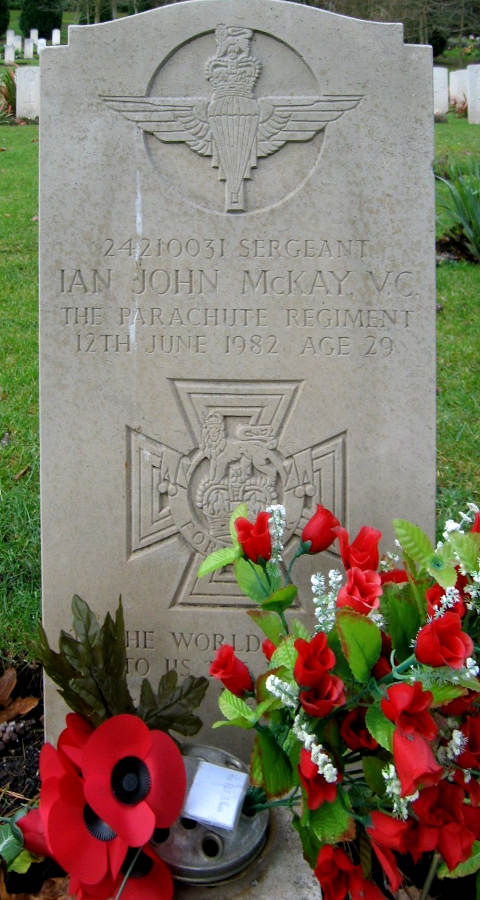 |
Rank:
Service No.:
Awards:
Date of Birth:
Date of Death:
Age:
Regiment:
Cemetery:
Add. Information: |
Sergeant
Victoria Cross
07 May 1953, Wortley, South Yorkshire
12 June 1982 (Battle of Mount Longdon)
29
3rd Bn. The Parachute Regiment
Aldershot Military Cemetery, Hampshire
|
The Victoria Cross citation: |
"During the night of 11th/12th June 1982, 3rd Battalion The Parachute Regiment mounted a silent night attack on an enemy battalion position on Mount Longdon, an important objective in the battle for Port Stanley in the Falkland Islands. Sergeant McKay was platoon sergeant of 4 Platoon, B Company, which, after the initial objective had been secured, was ordered to clear the Northern side of the long East/West ridge feature, held by the enemy in depth, with strong, mutually-supporting positions. By now the enemy were fully alert, and resisting fiercely. As 4 Platoon's advance continued it came under increasingly heavy fire from a number of well-sited enemy machine gun positions on the ridge, and received casualties. Realising that no further advance was possible the Platoon Commander ordered the Platoon to move from its exposed position to seek shelter among the rocks of the ridge itself. Here it met up with part of 5 Platoon.
The enemy fire was still both heavy and accurate, and the position of the platoons was becoming increasingly hazardous. Taking Sergeant McKay, a Corporal and a few others, and covered by supporting machine gun fire, the Platoon Commander moved forward to reconnoitre the enemy positions but was hit by a bullet in the leg, and command devolved upon Sergeant McKay.
It was clear that instant action was needed if the advance was not to falter and increasing casualties to ensue. Sergeant McKay decided to convert this reconnaissance into an attack in order to eliminate the enemy positions. He was in no doubt of the strength and deployment of the enemy as he undertook this attack. He issued orders, and taking three men with him, broke cover and charged the enemy position.
The assault was met by a hail of fire. The Corporal was seriously wounded, a Private killed and another wounded. Despite these losses Sergeant McKay, with complete disregard for his own safety, continued to charge the enemy position alone. On reaching it he despatched the enemy with grenades, thereby relieving the position of beleaguered 4 and 5 Platoons, who were now able to redeploy with relative safety. Sergeant McKay, however, was killed at the moment of victory, his body falling on the bunker.
Without doubt Sergeant McKay's action retrieved a most dangerous situation and was instrumental in ensuring the success of the attack. His was a coolly calculated act, the dangers of which must have been all too apparent to him beforehand. Undeterred he performed with outstanding selflessness, perseverance and courage.
With a complete disregard for his own safety, he displayed courage and leadership of the highest order, and was an inspiration to all those around him." |
| Doreen Bonner |
Rank:
Service No.:
Date of Birth:
Date of Death:
Age:
Regiment:
Cemetery:
Add. Information: |
Civilian
12 June 1982
She was killed by British shelling (accidentally) when she was sheltering
in a house during the naval bombardment of Stanley. |
|





